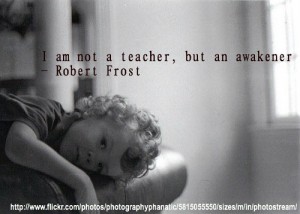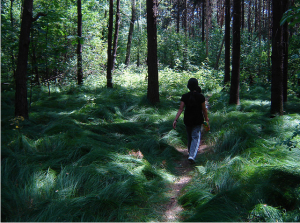Last month I completed my Masters in Education in Educational Practice from Simon Fraser University. This was a graduate field program, meaning that it was designed for working teachers to complete while continuing to work full time. It involved teacher inquiry into our practice using qualitative research methods. It was easily the most transformative learning experience of my life and I feel as if I’m walking through the world differently these days.
What did I learn? I’ve been cooking my thoughts, as Dr. Kelly, our prof, would say, to try to make sense of the year’s learning. It took me ten days to relax and come down from the intensity of the thesis submission and final comprehensive presentation. Once I relaxed, I realized how exhausted I am, both physically and mentally. Aside from the sleep deprivation, which I can remedy by returning to a normal bedtime, it’s a good exhaustion. It’s similiar to the wonderful feeling I enjoy after a long run when my body feels physically worked and tired, but the better for it. And what was it, exactly, that exhausted my mind? What’s actually still cooking in my thoughts?
I have moments of insight. Moments where there is pure clarity as to what I learned and how the MEd experience changed me. And then there are days of feeling lost and scattered and confused about how to synthesize and articulate even one piece of my learning. Is it even possible to communicate one entire year of intense study? Some days I think I need to just wait and, with time, clarity will arrive. Other days I think that to condense all that learning into so few words is impossible and unrealistic and will never happen, regardless of how much time passes.
I decided on a few profound learnings that I can, with certainty, share at this point:

1. I learned to attend, to be wide awake (see Maxine Greene). Not what I expected at all. I expected to learn ‘something’, not a way of being in the world. I hope to share this with others.
2. I learned that, in my humble opinion, to be literate in Canada today, to be literate in the world today, must include the ability to read and communicate with, and through, images. It’s not enough anymore to simply see literacy as reading and writing; overall literacy must include visuals as one of the forms of communication. I finally achieved an understanding of what this ‘visual literacy’ means and learned the beginnings of how to include it into my practice. See works by Elliot Eisner and David Jakes.
3. I learned that my own notion of citizenship has a local, national, global and digital component. Creating global citizens is a popular topic in education these days, especially in the blogosphere, but to me, that’s only one piece. It’s not sensible to have empathy for those in dire situations on the other side of the planet and yet turn a blind eye on those in dire need in your own community. And the complicated beast that became (digital) citizenship in my thesis is a topic I have yet to tame, although I enjoy the constant and challenging attempt to do so and I now, more than ever before, absolutely see this as a vital component to everyone’s education, not just, but especially, children’s.
4. I learned that deep caring for children, all children, sits as the base of my pedagogy. It always has, but I wasn’t aware of how and why until I wrote my thesis. Motherhood is a part of the deep caring, but not all of it. I care deeply for the well-being, the happiness and the future of all children, mine first, of course, but all other’s children a close second. The theme of care, always present before, but now with the added weight of notions like making decisions based on the 7th generation to come and scholars such as Nel Noddings to bolster and add support, is even more prevalent in who I am as an educator.
5. Finally, thankfully, I learned that I found a place of contentment. This is, of course, more of a mental state than a physical place. I often struggle to be content in life. I have high expectations for myself and those around me. I detest boredom and usually create a constant, positive push to improve and move forward in my life. With the ending of the Masters year, however, I realized I need to stop pushing for awhile and just be. And, thankfully, I’m content with that.
 And so, all this learning has left quite an impact on me personally and professionally. I will walk through the world in a different way, truly transformed by the learning experiences of this past year. I know that next month, I will walk into my school and my classroom differently. I’ll walk into that classroom determined to advocate for the arts, an approach, a method that children love and that is important for their education. I’ll walk into that classroom knowing that the reality of shared experience extends beyond the classrooms walls and into an intangible environment entered into through technology and that extension is changing, has already changed how we learn, engage with one another, and live our lives. I’ll walk into that classroom sensitive not only to the influence that my family’s complicated heritage has offered, now offers, to my practice, but also keenly aware that each of my students also bring known and unknown family history to their learning and our classroom environment. Finally, I know that I will walk differently as a mother with a new perspective on how to raise my children.
And so, all this learning has left quite an impact on me personally and professionally. I will walk through the world in a different way, truly transformed by the learning experiences of this past year. I know that next month, I will walk into my school and my classroom differently. I’ll walk into that classroom determined to advocate for the arts, an approach, a method that children love and that is important for their education. I’ll walk into that classroom knowing that the reality of shared experience extends beyond the classrooms walls and into an intangible environment entered into through technology and that extension is changing, has already changed how we learn, engage with one another, and live our lives. I’ll walk into that classroom sensitive not only to the influence that my family’s complicated heritage has offered, now offers, to my practice, but also keenly aware that each of my students also bring known and unknown family history to their learning and our classroom environment. Finally, I know that I will walk differently as a mother with a new perspective on how to raise my children.
More to come…
Imagery: Waking creativity by jenn.davis and Jurassic Park by mallitch, both from Flickr.com and used under Creative Commons licensing.

Errin, I am starting the same program in September. I’ve really enjoyed reading your blog and tweets. Any recommendations or tips for getting through the year? I’m curious also what your thesis project was about!
Hi Mike! Congrats on starting your MEd! It’s an amazing experience, tons of work, but absolutely worth it! Tips to get through? Make sure you have a good support network in place and decide what you’re going to let go of so you can put the time in to your studies. Don’t say yes to anything else, you won’t have time for it (or you’ll short change your time for your course).
I’ll post more about my thesis in coming months. I mainly looked at teaching using arts based methods, with a focus on visual arts, and teaching/learning with technology. The Metis/Cree strand of research was much more personal as it had to do with my family heritage and how I learned to teach. Good luck in September! Let me know if I can help in any way! And thanks for reading!
Cool, thanks for the advice. I like staying busy so I should love the program. I think we are very similar. My passions are creativity, technology (especially video) and social justice. It will be interesting to see how these intersect in my studies. I will definitely keep in touch.
Pingback: » Relaxed and grounded in a state of being uncomfortable Just a Thought…
Your reflections are poignant and describe, not only the intense feelings we experience at the end of such a long and arduous process, such as you just completed, but also the honest and continuous reflections of teachers who have integrity (heart). I suspect that when you re-read this in years to come, you might see that you still have days like this. Congratulations on your success and thanks for this wonderful blog post.
Hello Daryl!
Thank you for your kind words. No one has ever described my writing as poignant, that means a great deal to me! In recent conversations with others who have gone through similar experiences, your words are echoed – this is a lasting change and will be a part of me from now on. Quite remarkable, really!